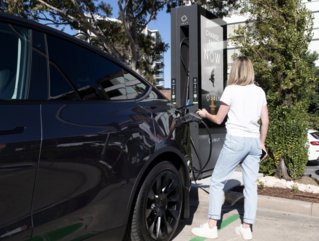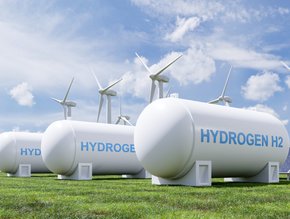JOLT enters the US EV charging market with TELUS telecom

The electric vehicle (EV) industry acts as a breeding ground for startups and market pivots, which is why we’re seeing more organisations bring their expertise into the fold.
The Australia-born EV charging startup JOLT seems to be one of these organisations as it makes a move from its current base in New Zealand, and taps into further markets in North America. Supported by the leading Canadian communications technology business TELUS, the company will leverage this strategic collaboration to penetrate the market.
In this process, TELUS and JOLT will develop and deploy 5,000 new fast-charging stations across Canada, which will operate on the TELUS network.
“As JOLT’s newest international market outside Australia and New Zealand, this partnership with TELUS is just the start of our ambitious plan to build tens of thousands of sites over the next decade in major cities globally, starting in Canada later this year,” said Doug McNamee, CEO, JOLT.
“Canadian cities have some of the highest EV uptake in North America and free public charging will make it even easier for Canadians to own an electric vehicle. We’re thrilled to partner with TELUS, which, like JOLT, has a focus on sustainability and innovation, to deliver best-in-class customer experiences.”
This programme is set to begin towards the end of 2023, starting with the installation of an extensive EV charging network that includes TELUS' public Wi-Fi capabilities in Toronto and Vancouver. Similar to JOLT's offering in New Zealand, the EV drivers using the JOLT charging network will have access to seven kilowatt-hours of complimentary charging per day. This translates to approximately 40 to 50 kilometres of range and a charging time of 15 to 20 minutes, depending on the specific vehicle. By using JOLT's charging infrastructure, drivers can save around US$1,000 per year.
“Our partnership with JOLT is another demonstration of how TELUS partners with innovative companies who share our values, like investing in a healthier, more sustainable future,” says Tony Geheran, Chief Operations Officer at TELUS.
“We are already 90% of the way to achieving our goal of using 100% renewable energy by 2025 due to our investments in Power Purchase Agreements, and this collaboration is another significant step forward.”
Charging EVs free and fast in New Zealand
JOLT is very much driven by electrification in Australia and New Zealand as it offers customers free and fast charging solutions through a broad partner base. The company launched in November 2022 and has since gained the interest of companies looking to support charging infrastructure development in the region. Governments, city councils, utility firms, and transport authorities are all on board with its offering.
The company prides itself on acquiring 100% renewable energy for its charging solutions and its most recent partnerships have been instrumental in its success, including Transport NSW, Ausgrid, Endeavour Energy, and a number of local governments.
“This partnership is a fantastic validation of JOLT’s business model,” says Chris Monaghan, New Zealand Country Manager at JOLT.
“Kiwi EV drivers have been loving our free, fast and clean charging to date, and it’s something we’re excited to take to the Northern hemisphere. New Zealand was JOLT’s very first global market expansion, and it’s great to see learnings from New Zealand contributing to JOLT’s expansion on a global stage.”






